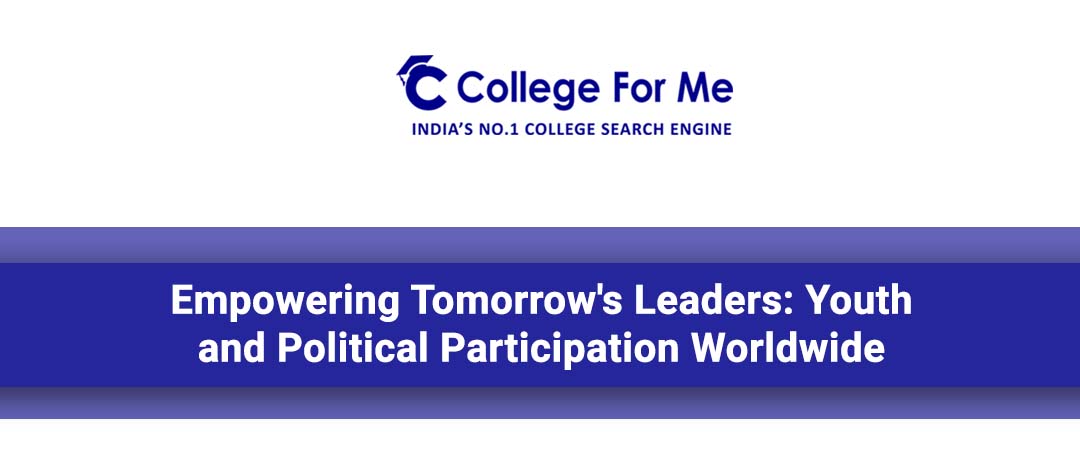Career Scopes Of A B.Tech. Student
There is a high demand for B.Tech. degree holders in the private sector, yet, there is also the opti...

In an era characterized by rapid technological advancements and interconnectedness, the role of youth in shaping the political landscape has gained prominence on the global stage. Young people are increasingly recognized as powerful agents of change, driving social movements, advocating for policy reforms, and demanding accountability from governments. This article explores the significance of youth engagement in politics worldwide, examining its benefits, challenges, and the potential it holds for shaping a more inclusive and just society.
The Power of Youth Engagement:
1.Fresh Perspectives: Youth brings fresh perspectives to political discussions. Their lived experiences, unique viewpoints, and innovative thinking can infuse new ideas into policy debates and challenge established norms.
2.Social Activism: Throughout history, young people have been at the forefront of social and political movements, from civil rights to climate action. Their energy, passion, and ability to mobilize masses contribute to driving positive change.
3.Technological Fluency: Growing up in the digital age, youth are adept at utilizing technology and social media platforms for activism and advocacy. Their online presence can amplify their voices and foster international solidarity.
4.Long-Term Impact: Engaging youth in politics ensures the creation of policies that cater to their needs and aspirations. This not only benefits the current generation but also lays the foundation for a better future for subsequent generations.
Challenges Hindering Youth Political Participation:
1.Limited Representation: Despite the potential they bring, young people often lack adequate representation in decision-making bodies. Institutional barriers and age requirements can hinder their ability to access political platforms.
2.Skepticism and Disillusionment: A lack of trust in political institutions, coupled with the perception of corruption and inefficiency, can lead to disillusionment among young people, discouraging their active participation.
3.Barriers to Entry: Financial constraints, limited access to education, and unequal opportunities can create barriers that prevent marginalized youth from engaging in political activities.
4.Lack of Political Education: Many young people lack basic political education, which is essential for informed participation. Strengthening civic education in schools can empower them with the knowledge needed to engage effectively.
Global Initiatives to Promote Youth Political Participation:
Youth political participation is more than a mere demographic statistic; it is a fundamental cornerstone of thriving democracies. The collective voice of young people has the potential to reshape policies, challenge inequalities, and pave the way for a more inclusive and just world. Governments, institutions, and society as a whole must recognize the significance of involving young people in political processes and take concrete steps to remove barriers, provide opportunities, and ensure their voices are heard. As we look to the future, empowering today's youth as active and informed political participants is an investment in a brighter, more equitable tomorrow.

There is a high demand for B.Tech. degree holders in the private sector, yet, there is also the opti...

If you are looking for a bright and prospective career, then getting a B.Tech. in CSE must be under ...
Comments (0)